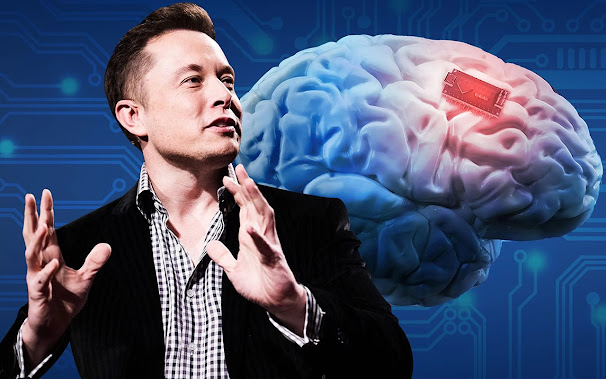Introduction:
Elon Musk's Neuralink Brain Chip Startup Gains Approval for Human Trial
In a groundbreaking development, Elon Musk's brain chip startup, Neuralink, has obtained approval from the U.S. Food and Drug Administration (FDA) for human testing. This achievement marks a significant milestone in the field of neurotechnology, paving the way for potential advancements in brain-computer interfaces (BCIs). Neuralink's FDA approval represents a crucial step towards realizing Musk's vision of merging human cognition with artificial intelligence (AI) and unlocking the full potential of the human brain.
Understanding Neuralink's Brain Chip:
Neuralink's brain chip, known as the N1 Link, is a sophisticated implantable device designed to interface with the human brain. The technology aims to establish a direct connection between the brain and external devices, enabling bidirectional communication. By implanting tiny electrodes into the brain, Neuralink seeks to decode neural activity and facilitate the transmission of signals between the brain and computers or other devices.
The Significance of FDA Approval:
The FDA's approval of Neuralink's human testing is a critical milestone, as it signifies the recognition of the company's technology as safe and promising for further exploration. This regulatory clearance acknowledges the potential benefits that brain-computer interfaces can offer in various applications, including healthcare, assistive technology, and human augmentation.
The Impact on Medical Treatments:
Neuralink's brain chip has the potential to revolutionize medical treatments by enabling precise and targeted interventions. The technology could facilitate the development of innovative therapies for neurological disorders such as Parkinson's disease, epilepsy, and paralysis. By directly interfacing with the brain, Neuralink's BCI could provide more effective control over prosthetic limbs, restore sensory feedback, and potentially alleviate the symptoms of various conditions.
Enhancing Human Capabilities:
One of the primary goals of Neuralink is to enhance human capabilities through the seamless integration of AI and the human brain. By establishing a high-bandwidth connection between the brain and external computing devices, individuals could potentially access vast amounts of information instantaneously, augment their cognitive abilities, and enhance their overall performance in various tasks. This technology has the potential to democratize knowledge and level the playing field by providing individuals with direct access to information and skills previously unattainable.
Ethical Considerations and Privacy Concerns:
The development of brain-computer interfaces raises important ethical considerations and privacy concerns. While the potential benefits are immense, questions regarding the privacy and security of neural data arise. Safeguarding sensitive information and preventing unauthorized access to individuals' neural activity becomes paramount. Ethical guidelines and robust regulations must be established to ensure the responsible use of this technology, the protection of personal data, and respect for individual autonomy.
Implications for the Future of Work:
Neuralink's brain chip technology could have significant implications for the future of work. The ability to seamlessly interface with computers and AI systems could redefine how tasks are performed and fundamentally change job requirements. With increased cognitive abilities and rapid access to information, individuals may need to adapt and acquire new skills to remain competitive in the workforce. This development also highlights the importance of education and lifelong learning to ensure individuals can effectively navigate the evolving landscape of human-machine collaboration.
Challenges and Potential Limitations:
Despite the tremendous potential of Neuralink's brain chip, several challenges and limitations must be addressed. One significant challenge lies in the invasive nature of the implantation procedure, which carries inherent risks. Ensuring the long-term safety and efficacy of the technology will require rigorous clinical testing and continuous monitoring. Additionally, addressing the affordability and accessibility of brain-computer interfaces will be crucial to ensure that the benefits reach a wider population.
Societal Impact and Ethical Dilemmas:
The integration of AI and human cognition through brain-computer interfaces raises profound societal implications.
Neuralink's FDA approval for human testing marks a significant milestone in the field of brain-computer interfaces and sets the stage for a revolutionary future. The recognition of Neuralink's technology as safe and promising by the FDA underscores the potential benefits it can offer in various domains, including healthcare, assistive technology, and human augmentation.



